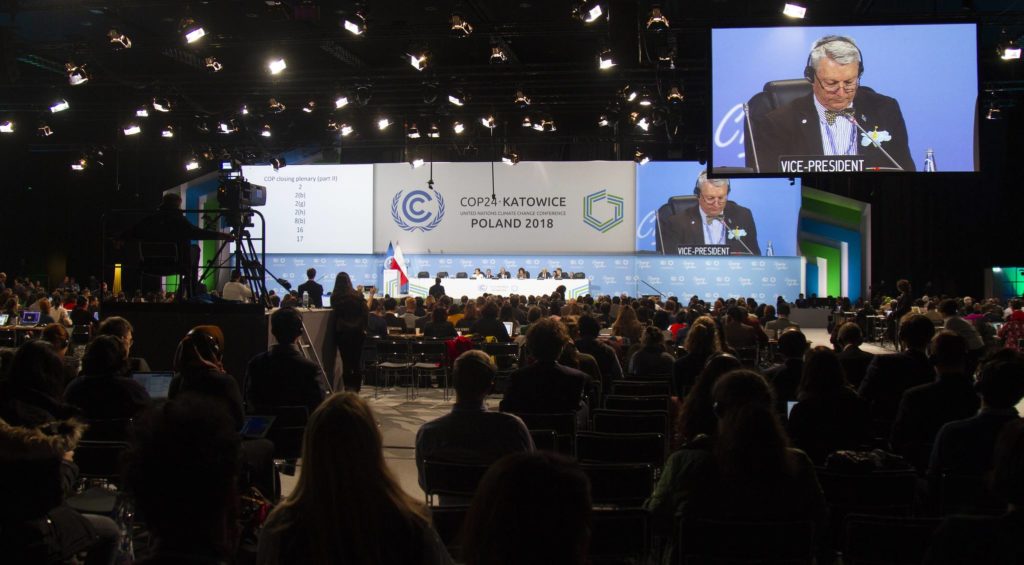
Ireland is the first country to divest from fossil fuels
Since 2012 the number of commitments on fossil fuel divestment has increased rapidly, reaching over 1000 institutions worth 7 trillion euro.

Since 2012 the number of commitments on fossil fuel divestment has increased rapidly, reaching over 1000 institutions worth 7 trillion euro.

At the U.N. climate summit in Poland, countries agreed upon the Katowice Climate Package, a set of rules for implementing the Paris Agreement. It is the outcome of a complex COP, due to technicalities and difficult international context. After two weeks and one extra day of tense negotiations, the rulebook to face and contain climate change got the green light.

Government leaders of over 160 countries in Marrakech adopted the Global Compact for Safe, Orderly and Regular Migration (GCM), the United Nations pact which aims

Meeting the goals of the Paris Agreement could save about a million lives a year worldwide by 2050 through reductions in air pollution alone, according to the World Health Organization. Health gains from climate action would be approximately double the cost of mitigation policies at the global level, and the benefit is even higher in countries such as China and India.

Just days before the start of the COP24 climate summit in Katowice, a mounting pile of major reports points to the same message: despite the efforts in place, action to tackle climate change is still far away from the objectives set in the Paris agreement.

Global levels of greenhouse gases have reached another new record high, according to the World Meteorological Organization (WMO).

The latest World Energy Outlook, the International Energy Agency’s flagship publication, details global energy trends and what possible impact they will have on supply and demand, carbon emissions, air pollution, and energy access.

Finance to provide electricity to millions of people who live without it is rising, but too slowly to meet the global goal to achieve universal

Despite the increasing number of policies to reduce disposable plastic items, studies show petrochemicals are becoming the largest drivers of future global demand for oil.

The 2018 Nobel prize in economics was awarded to two US scholars who have found a way to integrate innovation and sustainability into traditional macroeconomic models. CMCC scientists whose research followed the path traced by Nordhaus and Romer explain why this prize is so important.

Limiting the global temperature increase within safe levels requires an energy revolution. The development of breakthrough energy storage technologies can greatly help towards this goal.

Climate change is linked to some of the most pressing security challenges of our time, but the complex relationship between climate change and conflicts is far from being untangled. A new Sweden-led research collaboration aims to investigate the security implications of climate change.